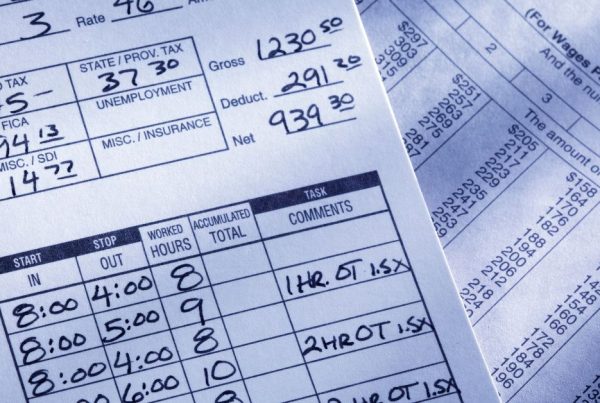
In today’s rapidly evolving financial landscape, data analytics has emerged as a powerful tool for financial advisors, enabling them to make more informed decisions and deliver superior client outcomes. By leveraging data analytics, financial advisors can gain deeper insights into market trends, client behavior, and financial performance, thus enhancing the accuracy and effectiveness of financial planning. This article explores the significance of data analytics in financial decision-making and how integrating these techniques with tools like Minute7 can streamline operations and improve client transparency.
The Importance of Data Analytics in Financial Planning
Understanding Data Analytics
Data analytics provides the means to analyze massive datasets, identify patterns and trends, and make data-driven decisions. Financial advisors are increasingly leveraging the power of data analytics tools to extract valuable insights and improve financial planning and decision-making processes. By using these tools, advisors can make informed decisions backed by accurate and timely information (source). Data analytics allows finance teams to scrutinize and comprehend vital metrics, detect fraud in revenue turnover, and improve internal operations (source).
The Role of Data in Financial Decision-Making
Data analytics is revolutionizing traditional accounting practices by bringing a data-driven approach to financial analysis and decision-making. Accountants now have the opportunity to go beyond surface-level observations and dive deep into the numbers to uncover valuable insights (source). Financial data analytics can be applied to company-wide performance in a variety of ways, such as developing company goals and objectives, building dynamic profit and loss statements, and streamlining budgeting and forecasting (source).
Benefits of Data Analytics for Financial Advisors
Data and analytics give financial advisors an advantage when it comes to analyzing market conditions. With access to real-time data, advisors are able to quickly assess how market conditions are affecting their clients’ portfolios. This type of analysis also allows them to identify opportunities for growth or risk management with greater accuracy (source). Data analytics software helps automate many of the manual tasks that financial advisors have traditionally had to perform in order to analyze portfolios and markets. This automation increases efficiency by allowing advisors more time to focus on client relationships rather than spending hours crunching numbers or researching investments (source).
Key Data Analytics Tools and Techniques for Financial Advisors
Data Collection and Management
Effective data collection and management are foundational to leveraging data analytics in financial planning. Financial advisors can use sophisticated tools such as the Black Diamond Wealth Platform, a cloud-based portfolio management system that aggregates information, customizes reporting, rebalances portfolios, and reconciles accounts daily (source). Such platforms provide a centralized hub for planning, reporting, and basic product analysis, significantly increasing operational efficiency and allowing advisors to focus on strategic decision-making and client acquisition (source).
Predictive Analytics and Forecasting
Predictive analytics employs techniques like big data mining, statistics, modeling, machine learning, and artificial intelligence to analyze large volumes of data and forecast future events or behaviors. This approach is invaluable in finance for decision-making, risk management, and fraud detection. For instance, in accounts receivable management, predictive analytics can identify customer payment patterns, credit risk, and potential defaults (source). Additionally, predictive forecasting leverages these analytics for rapid data consolidation, planning, budgeting, and scenario assessment, enabling advisors to make more accurate and flexible predictions (source).
Real-Time Data Monitoring and Reporting
Real-time data monitoring and reporting play a crucial role in enhancing market transparency and making informed investment decisions. For example, real-time trade reporting, mandated by regulatory requirements, ensures that market makers publicly report transactions immediately after they are completed. This practice, facilitated by systems like the Trade Reporting and Compliance Engine (TRACE), significantly improves price transparency and market efficiency (source). Financial advisors can leverage real-time data to provide up-to-date portfolio assessments and timely insights, thereby strengthening client trust and decision-making capabilities.
By effectively utilizing these data analytics tools and techniques, financial advisors can enhance their service offerings, improve operational efficiency, and deliver superior client outcomes.
Integrating Data Analytics with Time Tracking and Expense Reporting
Streamlining Financial Operations
Data analytics can significantly streamline financial operations by automating manual tasks, enforcing policy compliance, and providing valuable insights into spending patterns. Implementing expense management software like Minute7 helps create a more efficient financial process by automating time-consuming manual entries and reducing the likelihood of errors. This not only improves operational efficiency but also enhances accuracy and compliance (source).
Additionally, the integration of data analytics in financial operations optimizes processes, making businesses more competitive and efficient. Automated systems can reduce errors, improve accuracy, and free up resources that can be better utilized in strategic decision-making and client service (source). For instance, automating accounting processes and investing in financial analytics software can significantly enhance the quality of financial reporting and analysis (source).
Enhancing Client Reporting and Transparency
Data analytics also plays a crucial role in enhancing client reporting and transparency. By collecting and interpreting data from various interactions, financial advisors can gain a better understanding of their clients’ needs and expectations. This insight can be used to tailor financial strategies and improve the overall customer experience (source).
Furthermore, data analytics enables the translation of complex findings into easy-to-understand reports, charts, or dashboards, making insights accessible to both technical and non-technical audiences. This transparency not only builds client trust but also allows clients to make more informed decisions based on clear, data-driven insights (source).
The Role of Minute7 in Data-Driven Financial Planning
Minute7 serves as a vital tool in data-driven financial planning by providing comprehensive time tracking and expense reporting capabilities. The platform allows users to capture hours worked, track reimbursable or corporate credit card expenses, calculate mileage costs, and attach receipts directly to expense entries. These functionalities generate a rich dataset that can be seamlessly synced with QuickBooks or used independently, offering a robust basis for financial analysis and planning (source).
Additionally, Minute7 supports efficient management of billable hours, which is crucial for consultancies and service-based businesses. By optimizing consultant productivity and enhancing project profitability, Minute7 ensures successful project execution, maintains positive client relationships, and guarantees profitability. The platform’s time management features are pivotal in enabling consultancies to deliver high-quality service while maintaining financial health (source).
By integrating data analytics with time tracking and expense reporting through Minute7, financial advisors can enhance their operational efficiency, improve client reporting, and make more informed, data-driven financial decisions.
Leveraging Minute7 for Enhanced Financial Planning
Incorporating data analytics into financial planning empowers financial advisors to streamline their operations, enhance client transparency, and elevate the accuracy of their financial strategies. By leveraging tools like Minute7, advisors can seamlessly integrate time tracking and expense reporting into their data-driven workflows, ensuring a comprehensive approach to financial management.
Minute7’s robust platform supports financial advisors by automating time-consuming tasks, reducing error margins, and providing real-time insights into financial activities. The integration with QuickBooks allows for effortless synchronization of critical data, enabling advisors to maintain accurate and up-to-date financial records. This functionality is crucial for enhancing client reporting and ensuring transparency, as it allows advisors to present data in a clear, concise, and actionable manner.
Moreover, Minute7’s mobile and desktop applications offer flexibility and convenience, enabling financial advisors to capture and manage data from anywhere. This accessibility is particularly beneficial for professionals who need to track billable hours and expenses across multiple projects and clients. By utilizing Minute7, advisors can optimize their time management, ensure accurate billing, and ultimately improve their service delivery.
In conclusion, Minute7 stands out as a vital tool for financial advisors seeking to harness the power of data analytics in their practice. By integrating Minute7’s time tracking and expense reporting capabilities, advisors can enhance their operational efficiency, improve client relationships, and make more informed financial decisions. This data-driven approach not only benefits the advisors but also leads to better client outcomes, reinforcing the value of comprehensive financial planning. For more information on how Minute7 can transform your financial advisory services, visit Minute7’s website.



